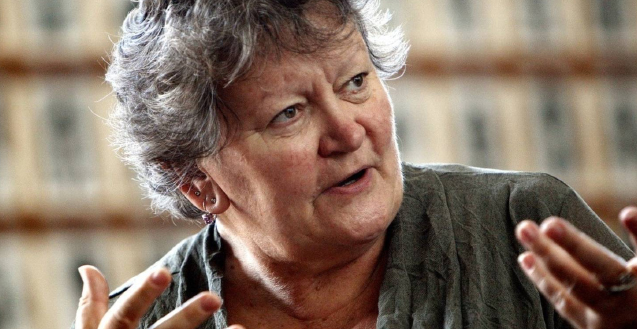Celia is a documentary that defies you to remain unmoved
The unavoidable unfairness of mortality imbues the film with an added sense of urgency.

Former 20/20 and 60 Minutes journalist Amanda Millar directs this portrait of Celia Lashlie, who campaigned relentlessly to raise awareness of the social issues facing New Zealand.
As Steve Newall writes, thanks to Millar’s feature debut, her dedicated work to improve the lives of others can continue to be discovered—likely through tears.
You’d be hard pressed to find a recent documentary more likely to defy one’s ability to remain unmoved than Amanda Millar’s Celia. The film’s namesake, Celia Lashlie, will be familiar to many New Zealanders already through her presence on screens as an impassioned advocate for new approaches to domestic violence, societal inequality and parenting via current affairs shows (including pieces by Millar). And, thanks to Millar’s feature debut, her dedicated work to improve the lives of others can continue to be discovered—likely through tears.
Celia serves as an elegy, after Lashlie succumbed to pancreatic cancer in 2015. Her diagnosis, merely months prior, spurred this documentary into existence, an opportunity for Lashlie to reflect on her life, and impart her final impassioned thoughts amassed across a lifetime of working with families in varied forms of strife. As Celia documents, the pace of Lashlie’s illness was tragically much quicker than expected, and rather than the comprehensive series of interviews Millar hoped for, her film now centres on a single conversation captured not long before Lashlie’s sudden passing, supplemented with archival footage including her work with couples struggling to break the cycle of domestic abuse.
It seems like a heavy challenge to a filmmaker to not only do justice to the life of a close friend but do so in the form of a documentary feature—with so much life and wisdom to encapsulate, and so little raw material to work with. Celia struggles with this at times, as well as with the stylistic jump from current affairs pieces to documentary feature. Dramatisations, while used sparingly, seem more suited to the small screen, as does some of the cinematography.
Unsurprisingly to those familiar with Lashlie, none of this really matters. Her passion and wisdom shine through, and the unavoidable unfairness of mortality imbues the film with an added sense of urgency. “Don’t stuff around and just get on with what we need to do,” Celia seems to say, “because none of us have that much time”.






















